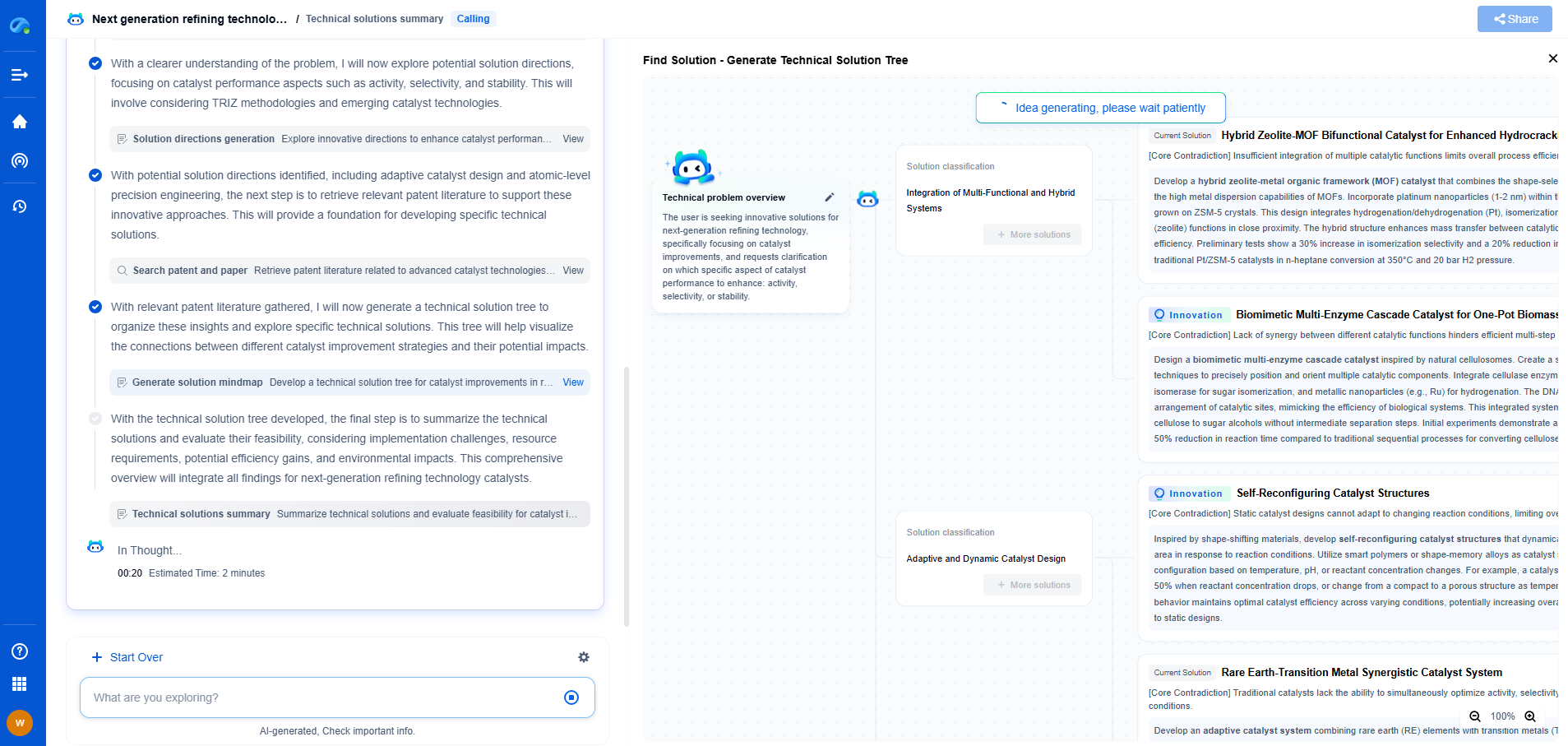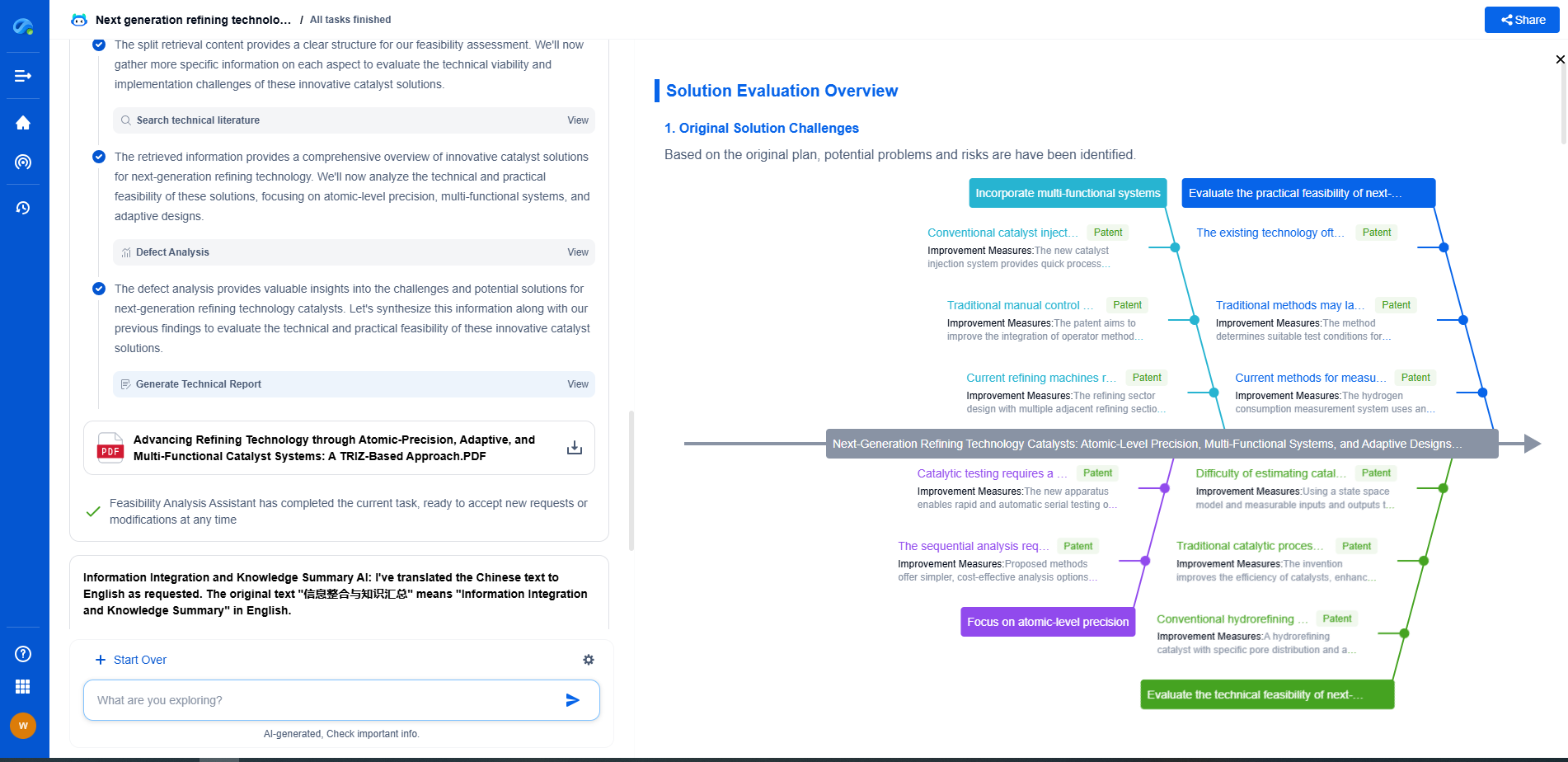Industrial PC vs PLC: Which Is Better for Your Automation Needs?
JUL 2, 2025 |
In the realm of industrial automation, choosing the right control system is crucial for optimizing efficiency, ensuring reliability, and maximizing productivity. Two prominent options are Industrial PCs (IPCs) and Programmable Logic Controllers (PLCs). Both have their unique strengths and potential limitations. This article explores the features, advantages, and drawbacks of each to help you determine which is better suited for your automation needs.
Understanding Industrial PCs
Industrial PCs are computers specifically designed to operate in harsh industrial environments. They offer high performance, flexibility, and connectivity, making them suitable for complex applications that require data processing and visualization.
Advantages of Industrial PCs
1. **Processing Power and Flexibility**: Industrial PCs come equipped with high-speed processors and large memory capacities, allowing them to handle complex algorithms and large datasets efficiently. They are ideal for applications that require extensive data analysis and processing.
2. **Versatility and Connectivity**: IPCs can run a variety of operating systems, including Windows, Linux, and real-time operating systems, offering seamless integration with other devices and systems. They support a wide range of communication protocols and have multiple I/O options, making them highly adaptable.
3. **User-Friendly Interface**: With the capability to display advanced graphics and user-friendly interfaces, IPCs are well-suited for applications that require detailed monitoring and data visualization.
4. **Scalability**: IPCs can be easily upgraded or expanded in terms of hardware and software, providing scalability for growing automation needs.
Limitations of Industrial PCs
1. **Cost**: Generally, IPCs are more expensive than PLCs, both in terms of initial investment and maintenance.
2. **Complexity**: The setup and programming of an IPC can be more complex, often requiring specialized knowledge and expertise.
Exploring Programmable Logic Controllers
PLCs are specialized computing devices used for real-time control of industrial processes. They are designed for discrete manufacturing and process control applications, known for their robustness and reliability.
Advantages of Programmable Logic Controllers
1. **Reliability and Durability**: PLCs are built to withstand harsh industrial conditions such as extreme temperatures, vibration, and electrical noise, ensuring uninterrupted operation.
2. **Ease of Use**: With intuitive programming languages like Ladder Logic, PLCs are easier to program and operate. This makes them accessible to technicians and engineers without extensive programming backgrounds.
3. **Cost-Effective**: PLCs generally have a lower initial cost compared to IPCs and are more economical in terms of maintenance and energy consumption.
4. **Real-Time Performance**: Designed for real-time applications, PLCs offer fast and deterministic response times, essential for critical control tasks.
Limitations of Programmable Logic Controllers
1. **Limited Processing Power**: PLCs have limited computational capabilities compared to IPCs, making them less suitable for applications requiring extensive data processing or analysis.
2. **Scalability Constraints**: While PLCs can be expanded, they are not as easily scalable as IPCs, which may limit their effectiveness in rapidly growing systems or highly dynamic applications.
Making the Choice: IPC vs. PLC
When choosing between an Industrial PC and a PLC, consider the specific requirements of your automation needs. Here are some factors to help guide your decision:
1. **Application Complexity**: For applications that require complex data analysis, high processing power, and graphical interfaces, an IPC may be the better choice. Conversely, for straightforward control tasks that demand reliability and durability, a PLC might be more appropriate.
2. **Environment**: Evaluate the environmental conditions of your application. If the setting is harsh with extreme conditions, a PLC's robustness might be advantageous.
3. **Budget and Maintenance**: Consider the total cost of ownership, including initial investment, maintenance, and potential downtime. PLCs generally offer a more cost-effective solution, whereas IPCs might require a higher initial investment but offer greater flexibility.
4. **Future Expansion**: If your automation needs are expected to grow or change significantly, consider the scalability and adaptability of your chosen system.
Conclusion
Both Industrial PCs and Programmable Logic Controllers have their place in the world of industrial automation. By carefully considering the unique features and limitations of each, as well as the specific requirements of your application, you can make an informed decision that enhances productivity and efficiency in your operations. Whether you opt for the advanced capabilities of an IPC or the reliability of a PLC, the key is to align your choice with the strategic objectives of your automation goals.
Ready to Reinvent How You Work on Control Systems?
Designing, analyzing, and optimizing control systems involves complex decision-making, from selecting the right sensor configurations to ensuring robust fault tolerance and interoperability. If you’re spending countless hours digging through documentation, standards, patents, or simulation results — it's time for a smarter way to work.
Patsnap Eureka is your intelligent AI Agent, purpose-built for R&D and IP professionals in high-tech industries. Whether you're developing next-gen motion controllers, debugging signal integrity issues, or navigating complex regulatory and patent landscapes in industrial automation, Eureka helps you cut through technical noise and surface the insights that matter—faster.
👉 Experience Patsnap Eureka today — Power up your Control Systems innovation with AI intelligence built for engineers and IP minds.
- R&D
- Intellectual Property
- Life Sciences
- Materials
- Tech Scout
- Unparalleled Data Quality
- Higher Quality Content
- 60% Fewer Hallucinations
Browse by: Latest US Patents, China's latest patents, Technical Efficacy Thesaurus, Application Domain, Technology Topic, Popular Technical Reports.
© 2025 PatSnap. All rights reserved.Legal|Privacy policy|Modern Slavery Act Transparency Statement|Sitemap|About US| Contact US: help@patsnap.com

